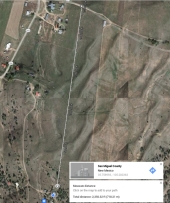












LEAD only by example, FOLLOW only when lost, fOR you only "GET OUT OF THE WAY" once per lifetime.
- me








LEAD only by example, FOLLOW only when lost, fOR you only "GET OUT OF THE WAY" once per lifetime.
- me









http://www.cloud9farms.com/ - Southern Colorado - Zone 5 (-19*f) - 5300ft elevation - 12in rainfall plus irrigation rights
Dairy cows, "hair" sheep, Kune Kune pigs, chickens, guineas and turkeys








J D Horn wrote:I'll plug Chris Stelzer's blog and podcast. He has put together a great string of interviews with interesting cattlemen that he's made available for free. Plus he interned for Greg Judy, so he's had great training. http://agriculturalinsights.com/
Agricultural Insights Daily Podcast/Blog about Sustainable Agriculture with a focus on livestock and grazing.
The Grazing Book




Chris Stelzer wrote:
I've also organized a grazing conference that will take place in late July/early August this year in Colorado Springs, CO. I will have details on my website. www.agriculturalinsights.com
Chris

http://www.cloud9farms.com/ - Southern Colorado - Zone 5 (-19*f) - 5300ft elevation - 12in rainfall plus irrigation rights
Dairy cows, "hair" sheep, Kune Kune pigs, chickens, guineas and turkeys




Agricultural Insights Daily Podcast/Blog about Sustainable Agriculture with a focus on livestock and grazing.
The Grazing Book

 2
2




Order copies of my book, Dairy Farming: The Beautiful Way at
www.createspace.com
Help spread the word! Thanks!
struggle - hustle - soul - desire




Agricultural Insights Daily Podcast/Blog about Sustainable Agriculture with a focus on livestock and grazing.
The Grazing Book









|
You frighten me terribly. I would like to go home now. Here, take this tiny ad:
The new purple deck of permaculture playing cards
https://www.kickstarter.com/projects/paulwheaton/garden-cards
|



